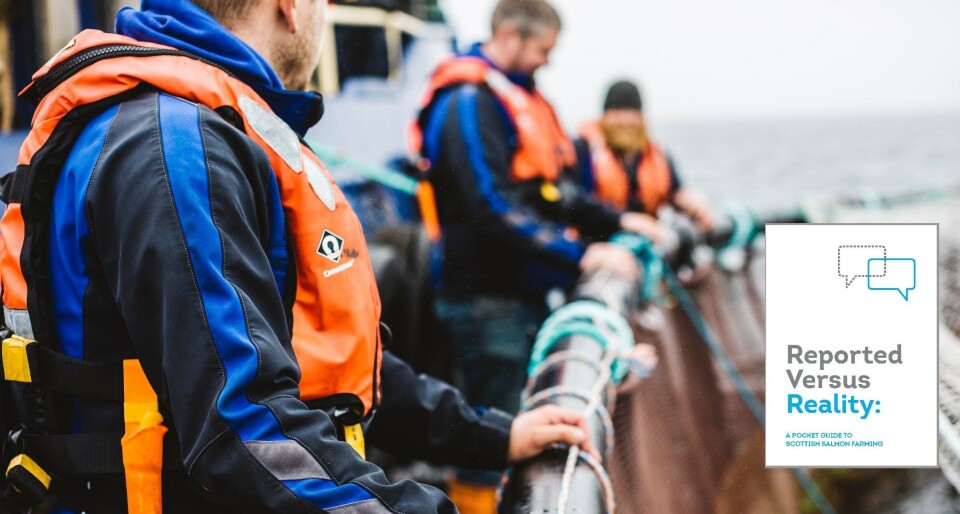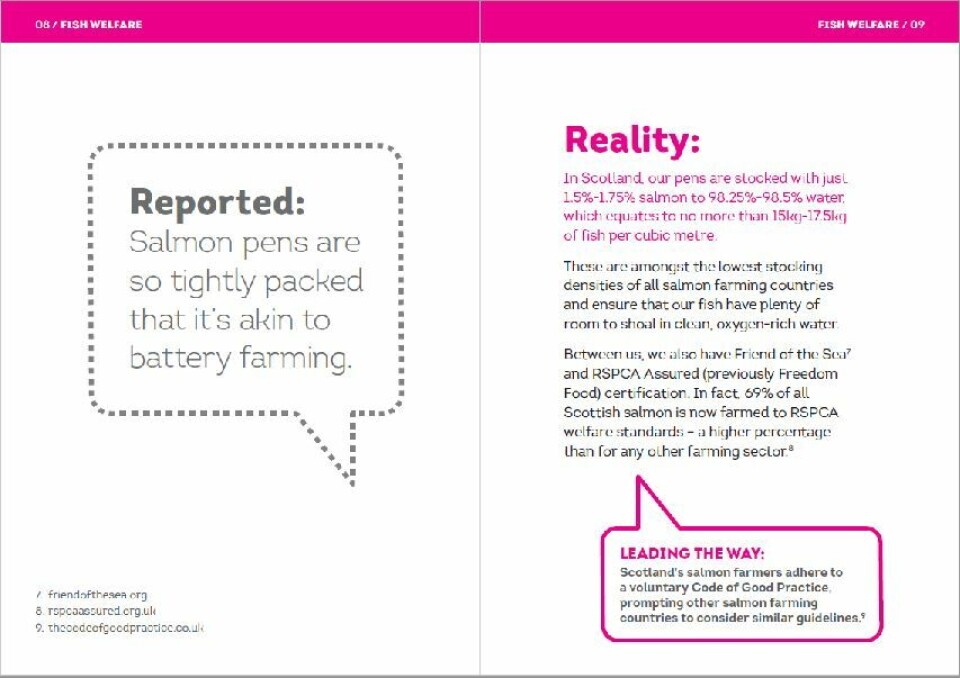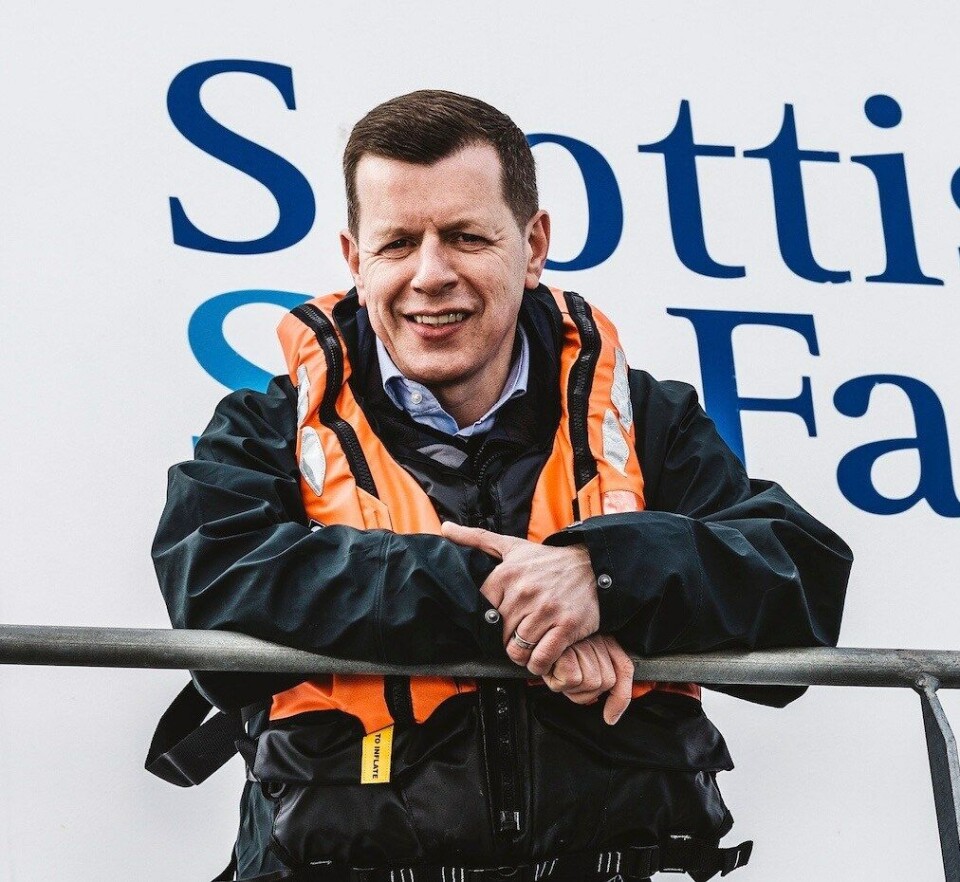
Salmon farmers brings misconceptions to book
Scotland’s salmon farmers are taking direct action to set the record straight about what’s happening within the industry in response to what they regard as inaccurate claims by opponents and unfair reporting by sections of the media.

In a campaign led by Scottish Sea Farms but supported by all seven of Scotland’s salmon producers, the industry has produced an easy-to-read A6-size booklet called Reported Versus Reality: A Pocket Guide To Scottish Salmon Farming.
The 24-page booklet has been sent to all Scottish MPs and MSPs and every local councillor in Scotland. Another 150 copies have been sent to organisations such as SEPA, Marine Scotland and Scottish Natural Heritage.
The booklet’s introduction states: “Much has been said about Scottish salmon farming in recent months; much of it misleading or inaccurate, particularly with regards to fish welfare and the impact of our farming activity on the environment.
“These inaccuracies, if left uncorrected, have the potential to do untold damage to the reputation of Scottish farmed salmon. They also have the potential to jeopardise much-needed jobs, reduce business for local suppliers, and diminish the sector’s significant contribution to the economy in terms of salaries, tax and export value.
“So on behalf of our people, our partners and our communities, this pocket guide aims to set the record straight and enable a fairer, more balanced dialogue about the future of this key sector for Scotland.”
The booklet is designed with a “Reported” issue on each left-hand page and the “Reality” of that issue explained on the opposite page.
A copy of the guide can be found here.

Claims about salmon farming that are challenged, explained or put into context include levels of mortality, sea lice control, pen density, impacts on wild fish and seal killing.
SSF managing director Jim Gallacher said: “Scotland’s salmon farmers have some of the strongest credentials of all the farming sectors, particularly with regards to sustainability with a lower carbon footprint than chicken, beef or pig farming.
“We’re also amongst the most highly regulated of all salmon farming countries in terms of both fish welfare and the environment, and invest millions year-on-year to find ever better ways of doing things.
“It’s this unrelenting commitment to meeting growing global demand for protein in the most responsible, sustainable way that we want to convey through the booklet, answering some of the most common misconceptions head-on and showing just how far the sector has come in four short decades.
“Is there scope to advance and improve further? Always – and as recent years prove, by working closely with the Scottish supply chain, government organisations such as Marine Scotland and SEPA, and world-leading researchers we can absolutely achieve it.”























































